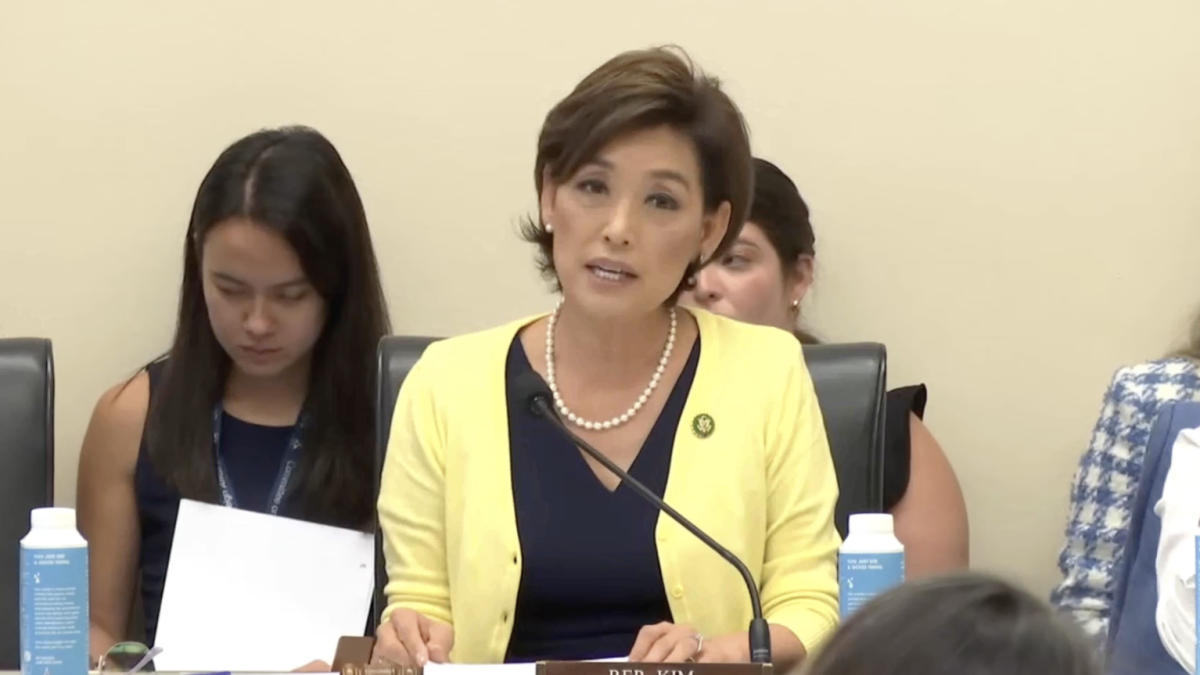Washington, DC – Today, on the 70th anniversary of the signing of the Korean War Armistice, U.S. Representative Young Kim (CA-40), who serves as Chairwoman of the Indo-Pacific Subcommittee, gave an opening statement at her subcommittee hearing titled, “Illicit IT: Bankrolling Kim Jong Un.”
Watch Chairwoman Kim’s remarks here and read her opening statement below.
Today marks the 70th Anniversary of the Signing of the Korean War Armistice, which ended hostilities on the Korean Peninsula. In solemn recognition of this anniversary, I am holding this hearing entitled “Illicit IT: Bankrolling Kim Jong Un”, to highlight the atrocities of Kim regime, and to shed a light on how the regime is able to circumvent international sanctions to fund its human rights abuses and its nuclear program.
As a Korean American with family members who fled North Korea during the war, this is an issue that is deeply personal for me. Having grown up in South Korea in the aftermath of the war, it is an honor for me to hold this hearing as Chairwoman of the Indo Pacific Subcommittee. I attribute this to South Koreans who bravely fought for their freedom, and to American troops who answered the call to defend a country they never knew and a people they never met.
Since the collapse of the 2018 peace talks in Hanoi, North Korea has significantly ramped up its nuclear aggression. It is launching intercontinental ballistic missiles more frequently, and with each launch is improving its arsenal. Given that North Korea is one of the most heavily sanctioned countries in the world, this begs a careful examination from Congress as to how North Korea is able generate enough revenue to continue expanding its arsenal.
North Korea engages in a long list of illegal activities, including human trafficking, slave labor, drug trafficking, arms proliferation, and cybercrime to generate revenue and sabotage the free world. Today’s hearing focuses on the latter.
The North Korean cyber army works side by side with the Korean People’s Army, supporting its espionage and sabotage missions. In March of 2023, North Korean hackers launched a large-scale cyber-attack against the software firm 3CX, which affected thousands of businesses, including in the healthcare industry, that store sensitive information about customers and patients.
North Korea also uses cyberattacks to generate revenue for its nuclear program. We reasonably believe that North Korea was behind the 2017 WannaCry ransomware attack which affected 300,000 users in at least 150 countries. In 2016, North Korean hackers attempted a $1 billion-dollar digital heist on Bangladesh national bank and managed to skirt off with $81 million. North Korea is also notorious for hacking cryptocurrency portfolios and laundering money through cryptocurrency platforms.
It is important to note that these hackers are not sitting together in a dimly lit room in Pyongyang- they’re all over the world, and mostly operating outside of North Korea, namely in China. Despite these previous cyber-attacks even affecting Chinese individuals and organizations, the People’s Republic of China (PRC) refuses to do anything about it. That is because the PRC actively helps to facilitate North Korea’s cyber-crime by providing it with the digital infrastructure it needs to carry out these attacks, and it does so because it does not want to see the Kim regime fail.
If we want to see the Kim Regime fail in its illegal ventures, then we must ensure that we enhance our sanctions and law enforcement activities targeting North Korea’s cybercrime.
We must also remember that while hostilities on the Peninsula ended 70 years ago, North Korea is still a hostile actor. Kim Jong Un murders and terrorizes its own people to ensure that he can remain in power, and he has no real interest in peace with the free world. We must be vigilant in ensuring there are no loopholes in our sanctions policies that he can exploit to denying his own people basic human rights, and we must work with our allies and partners in the Indo Pacific to ensure that we send Kim Jong Un a strong and unified message that his behavior will not be tolerated.
I also call on the Administration to ensure that human rights in North Korea remains at the forefront of our Indo Pacific Policy. I introduced the North Korea Human Rights Authorization Act, which authorizes activities to get outside information into North Korea, calls for the confirmation of a Special Envoy on North Korean, and calls for the reunion of divided families. I believe this legislation will ensure that we do not let human rights in North Korea become a peripheral issue, and I will push to get this legislation signed into law this Congress.



